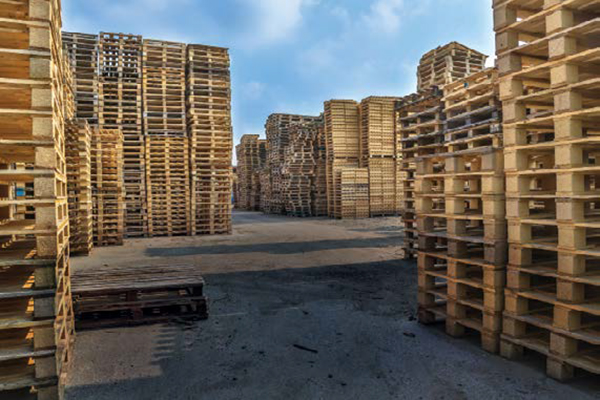In the evolving landscape of global logistics, sustainability has become a pivotal concern. Companies are increasingly recognizing the need to integrate environmentally responsible practices into their operations. One such innovation gaining traction is the use of recyclable pallets. These sustainable alternatives to traditional wooden pallets offer a range of benefits that align with modern logistics goals and environmental objectives.
The Shift Towards Sustainability in Logistics
The logistics industry, known for its substantial environmental footprint, is undergoing a significant transformation. Companies are driven by regulatory pressures, consumer demands, and corporate responsibility to adopt greener practices. Among the various strategies for achieving sustainability, the shift from conventional wooden pallets to recyclable pallets represents a crucial step forward.
Traditional wooden pallets, though widely used, pose several environmental challenges. Their production involves deforestation, which contributes to habitat loss and climate change. Additionally, wooden pallets often end up in landfills at the end of their lifecycle, further exacerbating waste management issues.
Recyclable Pallets: A Sustainable Alternative
Recyclable Pallets
Recyclable pallets are designed to address the shortcomings of their wooden counterparts. Constructed from materials such as plastic or composite materials, these pallets offer durability and efficiency while minimizing environmental impact. Here are some key benefits of recyclable pallets:
- Environmental Impact Reduction
Recyclable pallets significantly reduce the need for new raw materials. By using recycled plastic or composite materials, they help conserve natural resources and reduce the carbon footprint associated with pallet production. Unlike wooden pallets, which contribute to deforestation, recyclable pallets can be made from post-consumer or post-industrial recycled materials, thereby promoting a circular economy. - Enhanced Durability and Longevity
One of the major advantages of recyclable pallets is their enhanced durability. Unlike wooden pallets that can suffer from splintering, warping, or decay, recyclable pallets are designed to withstand harsh conditions and heavy loads. This increased longevity reduces the frequency of replacements and ensures consistent performance over time. - Reduced Waste and Lower Disposal Costs
Recyclable pallets offer a more sustainable end-of-life option. Unlike wooden pallets, which often end up in landfills, recyclable pallets can be returned to the manufacturer for recycling or repurposing. This closed-loop system helps minimize waste and reduces disposal costs for companies. - Compliance with Environmental Regulations
As environmental regulations become more stringent, businesses are required to adopt practices that align with sustainability goals. Recyclable pallets can help companies meet these regulatory requirements and enhance their corporate image by demonstrating a commitment to environmental stewardship. - Operational Efficiency
Recyclable pallets can improve operational efficiency in several ways. Their uniform size and weight contribute to better stacking and storage, which can lead to more efficient use of warehouse space. Additionally, their durability reduces the risk of product damage during transit, further streamlining logistics operations. - Cost-Effectiveness
While recyclable pallets may have a higher upfront cost compared to wooden pallets, their long-term benefits often outweigh the initial investment. The extended lifespan and reduced need for replacements contribute to cost savings over time. Furthermore, the reduced waste and disposal costs associated with recyclable pallets can further offset the initial expenditure. 
The Future of Pallet Solutions
The transition to recyclable pallets represents a forward-thinking approach to sustainable logistics. As more companies embrace these eco-friendly alternatives, the logistics industry will continue to evolve towards greater environmental responsibility. Innovations in recyclable pallet materials and designs are expected to further enhance their performance and sustainability, making them an integral part of modern logistics strategies.
Conclusion
In conclusion, recyclable pallets offer a range of benefits that align with the goals of sustainable logistics. By reducing environmental impact, enhancing durability, lowering disposal costs, and improving operational efficiency, recyclable pallets present a compelling alternative to traditional wooden pallets. As the logistics industry continues to prioritize sustainability, the adoption of recyclable pallets will play a crucial role in shaping a more environmentally responsible future. Embracing these innovative solutions not only addresses environmental challenges but also contributes to the overall efficiency and effectiveness of logistics operations.



